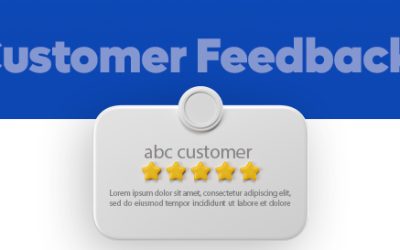One of the major tasks of healthcare search engine optimization companies is to monitor mentions of their client organizations online. Reviews are the first place to look. Positive reviews are great for the practice, but what if negative reviews creep up? They can’t be removed unless they are fraudulent, so the practice will really have to deal with the issue.
It is very likely that your practice gets at least one negative review. Since every patient you deal with is different in behavior, outlook and expectations, despite your best efforts, some patients or their loved ones would feel they haven’t been treated well or their needs have not been given priority. But not all who feel that way would necessarily take to the internet and get a negative review posted. Some, however, would go all out to give full vent to their frustration.
Positive Reviews Are Just So Good
You can never overemphasize the importance of good reviews. Google’s algorithms do consider positive reviews on Google, Yelp, Facebook, etc in order to rank your practice. So, yes, negative reviews are detrimental to your growth and reputation. Even then, don’t ever panic when you come across a negative review. That’s because panicky reactions, in terms of angry responses, can only cause more harm to your reputation than even the negative reviews can.
If Yelp has five positive reviews, they can give you a boost in business, even up to 20% according to a Harvard Business School report.But even a single negative review could make customers hesitate about interacting with you again. And that equates to a significant reduction in business earnings. We all know that.
But still, it is important to first take stock of the situation. So stay calm, accepting that negative reviews are inevitable. What you do next is important.
Dealing With Fake Negative Reviews
Firstly, check your records to see if the review is genuinely by one of your patients or customers. If not, it could well be a fake review. But before you take any action against it (which you should) respond to it immediately. This is to give your other customers or patients, and your target audience, the impression that you respond to dissatisfied customers right away and that you value their response.
Here’s how you respond to what you believe is a fake review. Address the complaint specifically. Apologize for the trouble caused. And you can indicate that you aren’t able to track the reviewer as having visited your practice as a patient. Provide any contact information required to address their concerns better and also offer to fix them. After you’ve done that, you can flag the review to indicate that it is fraudulent.
Responding to Real Negative Reviews
Indeed, the steps to reply to reviews are more or less the same for fake as well as real negative reviews. Whatever be the negativity conveyed in the review, make sure your responses are all positive. Your responses must contain the following components:
- Thank the reviewer for their opinion
- Indicate your concern
- Apologize and be honest about any mistakes made by your practice
- Acknowledge the reviewer’s concern as genuine, and if you feel it can’t be true, follow the next step
- Explain the possible reasons for the person to have felt wronged
- Provide a contact number to the concerned individual for the complaint to be fully redressed
Getting the Negative Reviews to Work for You
Now, negative reviews can also be beneficial to you, if they indeed describe a real issue. If you have more than one negative review, you can go through them to find out if there are any common factors mentioned. There could be some adjective or any other word that is common in all the negative reviews. Identifying such patterns could help you find which aspects of your practice or staff service require improvement. Yelp reviews actually highlight words that are used by multiple users. Genuine negative reviews can therefore work to your advantage, if you take the criticism constructively rather than personally. These reviews could even determine how you make your practice grow or develop to the next level.
While you should promptly respond to negative reviews, you must also promptly take action on the issue mentioned. Let the review be the motivating factor to get you to make the necessary changes.
Transforming Negative Reviews to Positive Ones
Genuine negative reviews can also be handled off-line. As we mentioned earlier, in your online response you can mention your contact details so the individual can contact you and resolve the issue. But ensure that you first apologize for what the reviewer experienced. After you have solved the issue, you can comment on the negative review by saying that the matter has been resolved.
If your resolution of the matter has been satisfactory, customers themselves would be glad to post a positive response, informing how prompt you were in dealing with the matter. That instantly raises your profile and wins some of the lost reputation back. That’s how you can make a negative review work for you. The customer can even be requested to remove the negative review.
Work at Getting a Flood of Positive Reviews
Though a single negative review can create a dent in your reputation, if that is the only black mark in a sea of positive reviews then its potency does get toned down a bit. So if you’re confident in the service you have provided, encourage your satisfied customers to post reviews.
Experienced medical SEO companies offer review management as part of their services. If the steps mentioned above appear too burdensome, outsourcing them as part of an SEO package could be the solution, enabling you to focus on running your practice. Review management is also a vital ingredient of medical marketing for a DME company.







